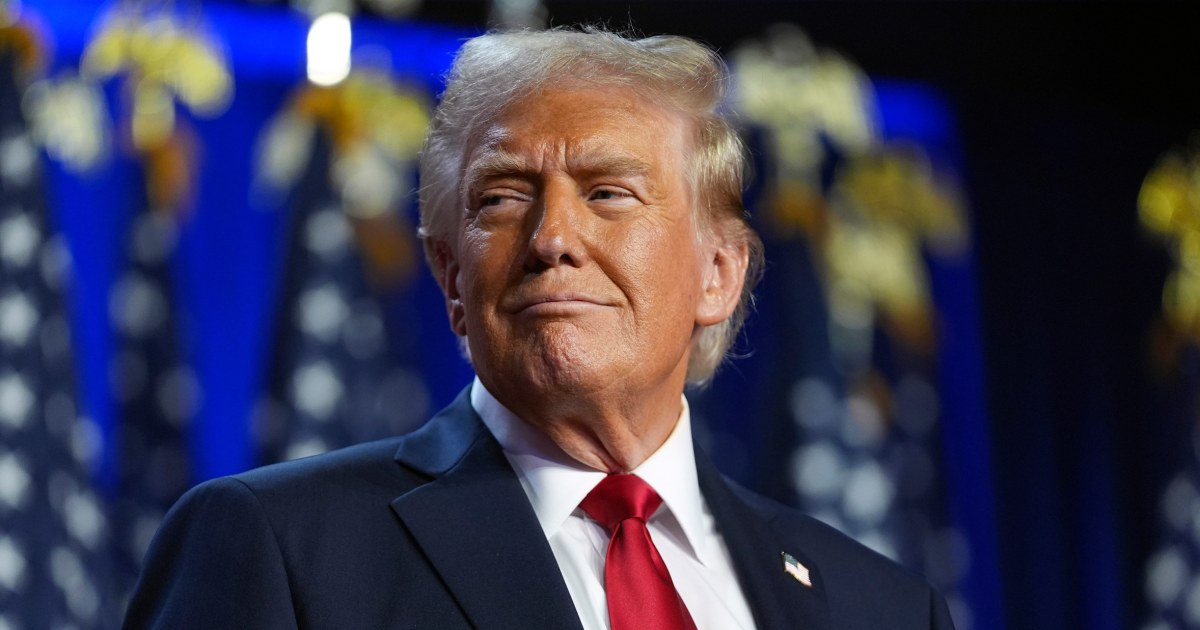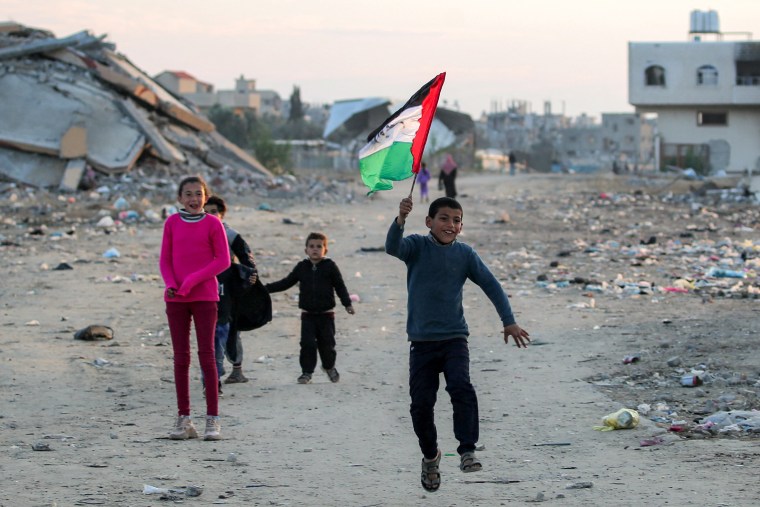What changed since the Gaza ceasefire deal was rejected months ago? Trump, some officials say

TEL AVIV — For eight months, the framework of the ceasefire deal that could bring an end to the war between Israel and Hamas had been on the table, prompting fury about the delay among some, and now praise for President-elect Donald Trump for helping to get it over the line.
President Joe Biden confirmed in a statement Wednesday that the deal was based on the “precise contours” of a May 2024 ceasefire plan that was “endorsed unanimously” by the United Nations Security Council. He also credited the work of key negotiators, including Egypt and Qatar, and “extreme pressure” on Hamas for helping to secure the truce.
While U.S. officials have credited the collaboration between Trump’s special envoy to the Middle East, Steve Witkoff, and Biden’s Middle East representative Brett McGurk for securing the deal, the president-elect sought to claim much of the credit for himself on Thursday.
Biden “didn’t do anything,” he said in an interview on “The Dan Bongino Show.” “If I didn’t do this, if we didn’t get involved, the hostages would never be out.”
The deal could soon bring an end to more than 15 months of war in Gaza that began on Oct. 7, 2023, with Hamas attacks on Israel in which roughly 1,200 people were killed and around 240 people taken hostage, according to Israeli tallies, marking a major escalation in a decadeslong conflict. Israel’s offensive in Gaza has killed more than 46,500 people since then, according to health officials in the enclave.
Israeli Prime Minister Benjamin Netanyahu thanked Trump directly for his role in the negotiations in a phone call Wednesday, Netanyahu’s office said in a statement. Afterward, he thanked Biden in a separate call, the statement added.
For David Mencer, a spokesman for Netanyahu, it was Hamas that had changed its stance since the deal was first tabled in May. The death of its leader Yahya Sinwar, who was confirmed killed by Israeli forces in October, had also played a role, he said in a voice note Friday.
“What changed was that Hamas had been heavily degraded,” he said, adding that most of its leadership had been “eliminated” and “their weapons stockpile has been wiped out.”
In an interview with NBC’s “TODAY” on Thursday, White House National Security Council spokesman John Kirby also said, “What really got us to this point was the isolating and weakening of Hamas.” Previously, Hamas had thrown up obstacles to the deal “time and time again” and “wasn’t willing to negotiate in good faith,” he added.
Trump’s support for the deal had “certainly helped,” but “we need to stop worrying about this whole credit business and who gets credit for what,” he said.
Asher Kaufman, a professor of history and peace studies at Indiana’s University of Notre Dame, also noted that progress in the talks came amid a shifting landscape in the Middle East, although he did attribute the success to Trump.
“It has to be remembered that the world, the region has changed with the weakening of Hezbollah, the weakening of Iran, the fall of Assad,” he said in a phone interview on Thursday. “There are changing dynamics … which facilitate the possibility of such an arrangement.”
Nonetheless, he said, he believed that ultimately Trump was “the game changer in a sense, because of the relationship between him and Netanyahu.”
Inside Israel, many are crediting the “Trump effect” for the breakthrough.
Among them is Efrat Machikawa, whose 80-year-old uncle Gadi Moses remains in captivity. “I’m very grateful for the Biden administration for the very long period where they tried, but I have to say the Trump effect is great,” Machikawa, 56, said Friday.
Machikawa, 59, added that she had not received any news about her uncle for months, but he is on the list of the 33 hostages expected to be released in the first phase of the ceasefire deal. Not knowing his fate was “just terrible,” she said.
Trump was also credited as the “X factor” that got the deal over the line by Gil Dickmann, whose cousin Carmel Gat was taken hostage and killed in Gaza. Dickmann said in an interview Wednesday that the only thing that had changed since May was “that Carmel is now dead and Trump is now president, and now we have a deal.”
In Gaza, the death toll has risen by more than 11,500 since May, according to Palestinian tallies, although researchers have warned that the death toll is likely significantly higher than official numbers suggest and thousands of people are feared buried under the rubble.
Even Gershon Baskin, an Israeli who has acted as a mediator with Hamas for decades, credited Trump for the success, although he said it was “disgusting” that a truce has only come to fruition eight months after it was first tabled.

Pointing to the fact that thousands of Palestinians and several hostages were killed in Gaza in the intervening period, Baskin, a frequent critic of Netanyahu’s government, said it was “outrageous” that it had taken so long.
“It was only really accepted in the end because Trump came along and Trump told Netanyahu to do it,” added the seasoned negotiator, who helped to secure the release of captured Israeli soldier Gilad Shalit more than a decade ago.
Just as it seemed ready to be approved, the deal appeared to hit a roadblock after Netanyahu’s office claimed Hamas had reneged on part of the agreement — an accusation the group strongly denied.
However, in the early hours of Friday morning, Nentanyahu’s office said he would seek approval for a deal from his security Cabinet and then his full Cabinet. Israel’s Supreme Court would then have 24 hours to permit an appeal.
If all goes to plan, the deal will come into effect as early as this Sunday, the day before Trump’s inauguration.
But Baskin said he feared a “difficult process” in seeing the three-phase ceasefire deal enforced in the months ahead.
“The crucial thing is that it has to be implemented now,” he said.
Related
Qatar emphasizes importance of reaching agreement between US, Iran
CAIROQatar's Prime Minister Sheikh Mohammed bin Abdulrahman Al-Thani stressed the critical need for an agreement between the US and
International Women’s Day: Seeking a Balance with Ghada Al Subaey
1309’s Ghada Al Subaey of Qatar celebrates the many layers of femininity in her recent drop, called Labyrinth of Light. This International Women’s Day, the
Discover Ooredoo Plans and Services in Qatar
Ooredoo is the household name in the field of telecommunications and provides a full portfolio of telecom services: mobile plans for everyone, home
What Will The Imminent Qatar Airways Widebody Order Include?
Which Airline Alliance Do You Prefer To Fly With?












